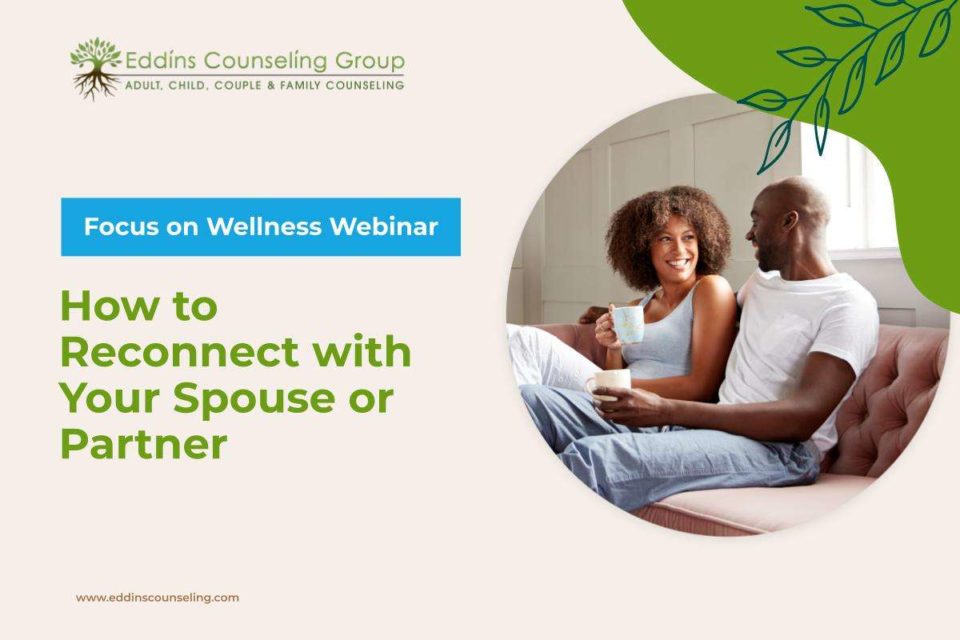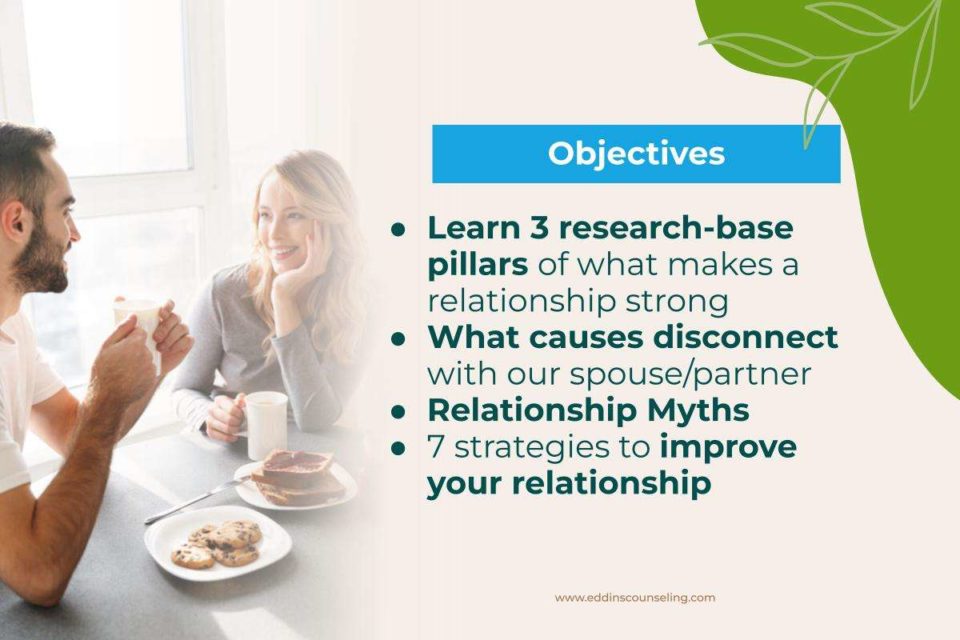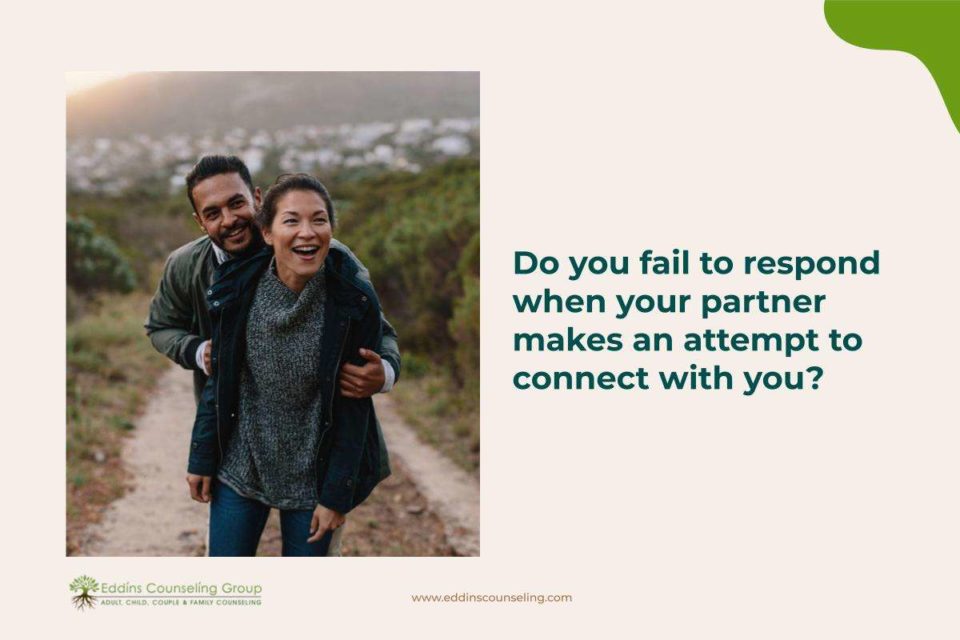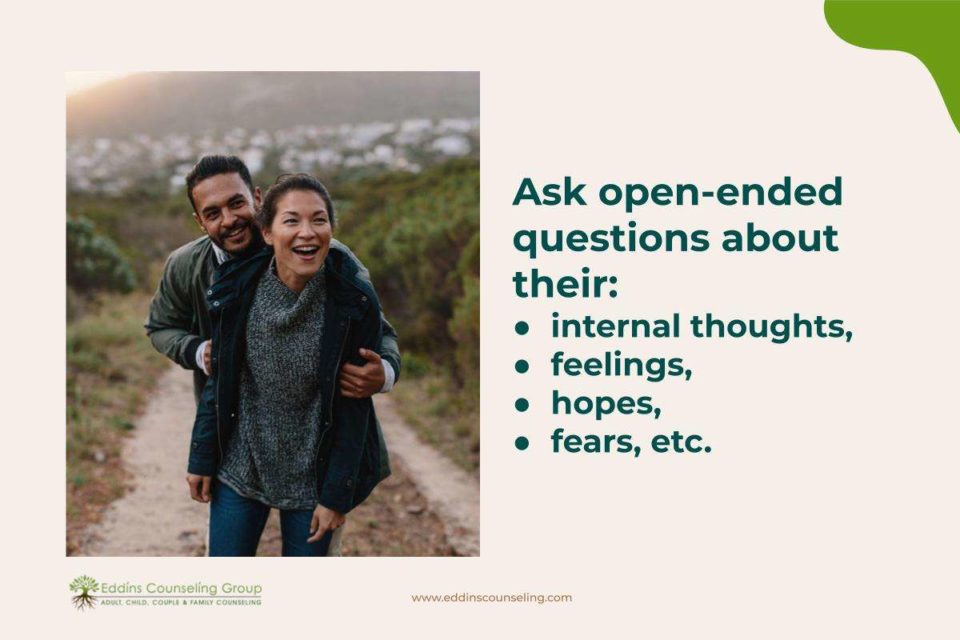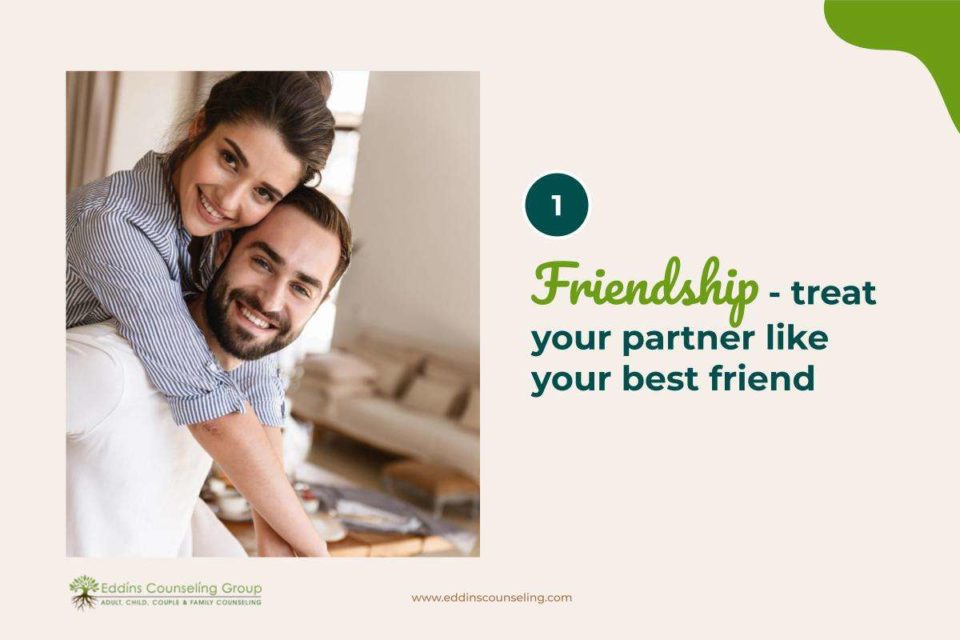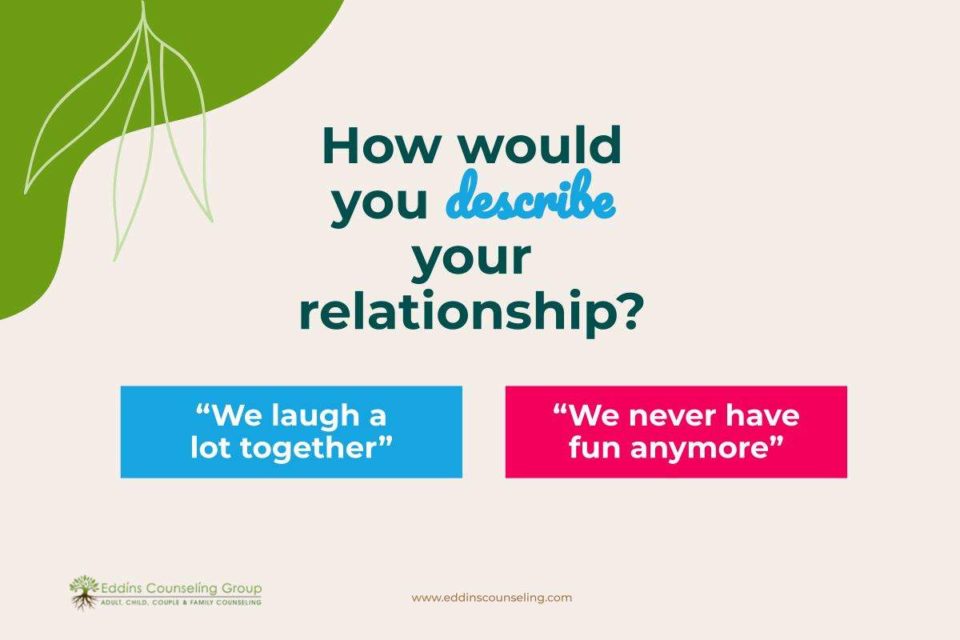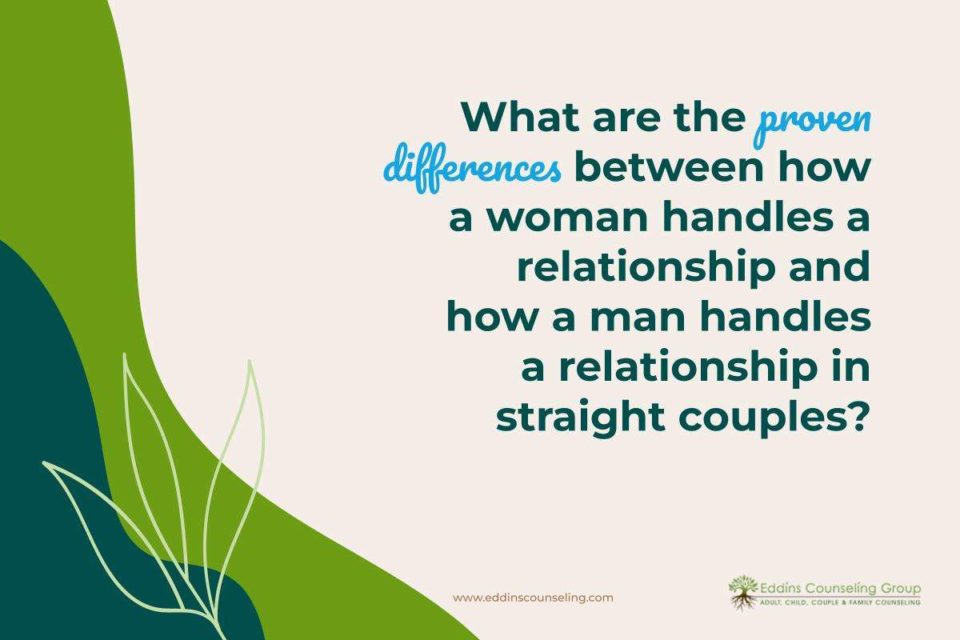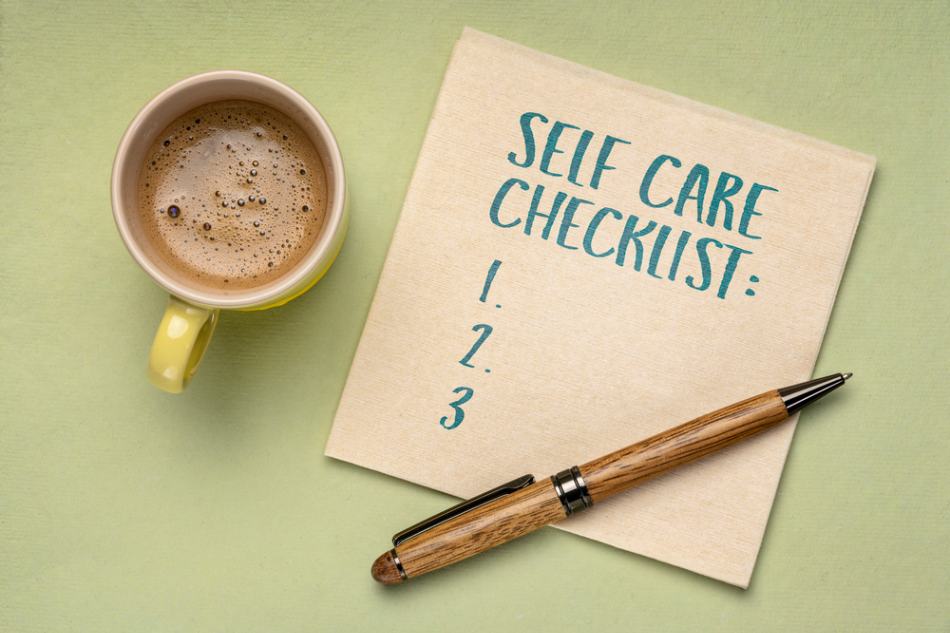May 13, 2021
Webinar: How to Reconnect with Your Spouse or Partner
Written by Rachel Eddins
Posted in Relationships, Couples, Marriage, Webinars and with tags: Intimacy, connection, relationship repair

- Are you having trouble communicating and feeling connected with your partner?
- Do you feel disconnected or like you have drifted apart?
Healthy communication, trust, and friendship are the pillars of a strong relationship. Join us for this talk, where you will learn skills for healthy communication, ways of building intimacy and fondness, and tools to strengthen your long-term relationship/marriage.
Facilitated by Ametis Bassir, LPC
Watch a replay of the presentation here.
Learn more about relationship counseling services.
Here is a transcript of the webinar:
Hello! My name is Ametis Bassir. I am an LPC and I am a doctoral candidate as well. I am also an individual and couples therapist. So I do 50% of both, I see couples and individuals for trauma work. My specialties are eating disorders, body image, women’s issues, and couples and relationships.
Today’s focus of our topic is going to be How to Reconnect with your Spouse or Partner, whatever you share the name of your significant other.
We will have some time for questions at the end and hopefully, make a little time for that. If you do have a question, you can pop it into the chat and just type it out or you can just hold it until the end. I’ll make some time in the end if you have any questions about what we go over or anything else that you want to ask. I’m happy to help and see if I can answer them.
Objectives
- Learn 3 research-base pillars of what makes a relationship strong
- Learn what disconnection with our spouse/partner
- Myths about relationships
- 7 strategies to improve your relationship based on 40+ years of research
Our objectives are to learn three research-based pillars of what makes relationships strong. I think that the number one thing I always get from couples is what makes a strong relationship and then what makes relationships deteriorate. Also, learn ways that create disconnection with your spouse or partner. That’s often the question I get a lot as well. Like: “What happened? What makes us or gets us to the point where we feel disconnected?“ Myths about relationships and some truths about that, as well as seven strategies that helped to improve your relationship.
All of what we’ll discuss tonight comes from the Gottman Institute. I am level three trained in the Gottman method. I’m in the process of hopefully getting certified. The Gottman method is a type of couples therapy. Gottman has done over 40+ years, almost four decades of research on couples’ intimate relationships. All of this is really research-based, it comes straight from the data. I wanted to provide you guys with the utmost information that is relevant, that is predominantly from empirically supported evidence.
What Creates Disconnect?
I think I get this question a lot, or inherently I think I get it from couples a lot. So I’m sure everybody may have some ideas of what that might look like.
It probably is a combination of a lot of things, from a lot of different types of couples modalities.
Really, the overarching theme is that couples don’t feel connected, they don’t feel attached, and they don’t feel emotionally intimate with one another.
They don’t feel like they know each other. And that creates a disconnect.
It feels like you’re not attached, you’re not close. You don’t understand each other. You don’t get each other.
And the more that that grows, the more outside influences, trauma, loss, grief, covid, those types of things can get into our relationship and even bridge that disconnection even further.
So we feel further away from our partner. We don’t know what their world looks like. We don’t understand them and we don’t feel understood oftentimes.
That’s really the kind of overarching reason why most couples feel disconnected or detached from their partner, why they feel so far away.
The 3 Pillars (What Makes a Relationship Strong)
The three pillars are all based on research and I’ve tried to hone them down because there’s so much to share. I wanted to include a lot of information, but I also didn’t want to bombard you with too much at one time. So I’ve really summed it up to the top three pillars of what makes a relationship strong.
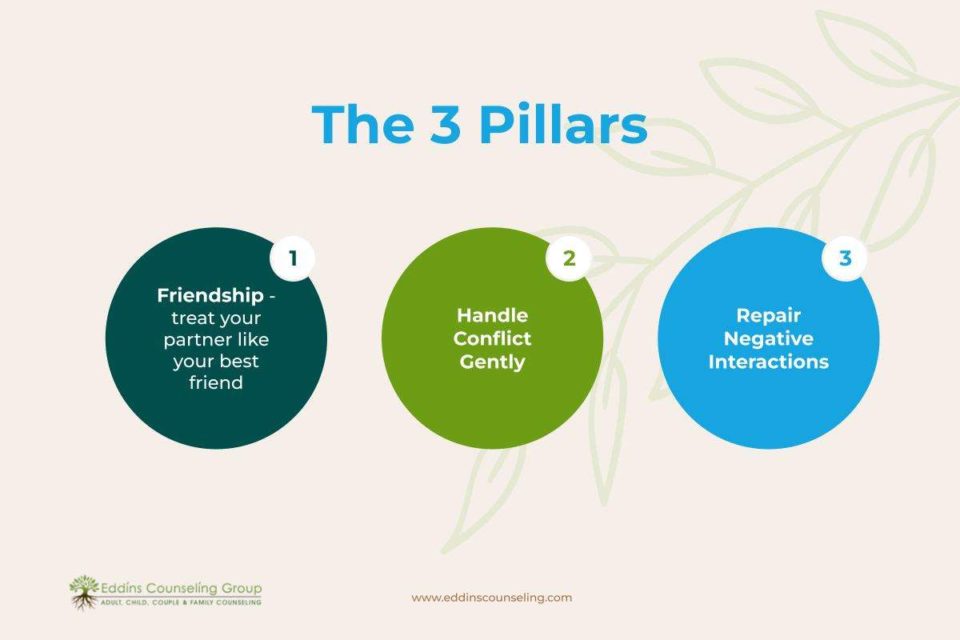
1. Friendship
- Treating your partner like your best friend
- Learn about what’s happening and going on in your partner’s world
- Sometimes we fail at checking in with our spouse/partner or fail to respond to their attempts to connect
- Ask open-ended questions about their:
- internal thoughts,
- feelings,
- hopes,
- fears, etc.
- Ask open-ended questions about their:
- The Masters vs. the Disasters
- 86% attempts to connect versus only responding to these bids 33%.
(Content source: The Gottman Institute)
Number one is friendship, which I think some of the couples that I see are surprised by, but really, it’s about treating our partner like we are their best. We are best friends. We know each other so well.
It’s about learning what’s happening and going on in your partner’s world. I think oftentimes for couples, we do a really, really good job of being attentive, being very interested, being very open, and being very curious in the early stages of a relationship when there are sparks, the intensity is higher, and the honeymoon period is around. Sometimes over time, we fail at checking in with our partner.
We may fail to respond when they make attempts to connect with us.
So we’ll kind of talk about those attempts of connection a little bit later and the slides. Well, one way that we can practice that and practice building a friendship with our partners is by asking open-ended questions about what’s going on in their internal world. About their own thoughts, feelings, hopes and dreams, and fears. Some of those may stay the same, like what is your partner’s favorite flower? So, on her/his birthday or Valentine’s Day, you know what to get them.
But that might change if you are starting a family, looking to buy a house together, or having struggles in work or school. So over time, those fears or dreams might change and if we don’t check in and ask about that, we might not be clued into what’s going on internally for them. And we’re not mindreaders. We can’t anticipate or assume what’s going on for our partners. We’ve got to ask.
There are such interesting data that came from the Gottman’s that over the last 40 years they kind of clump the masters of relationships, and the disasters as people or couples who are not effective in their relationships.
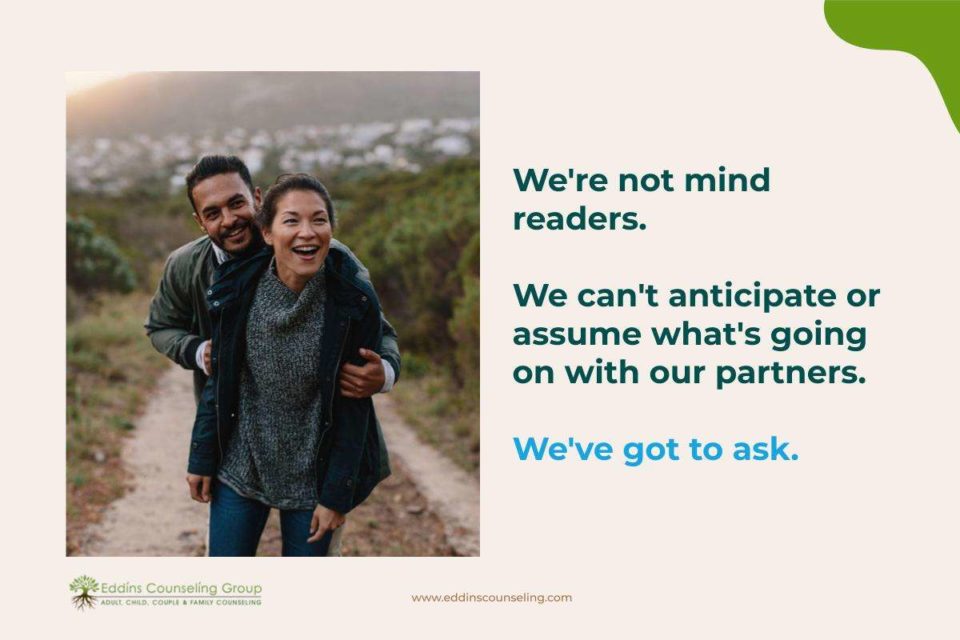
They notice through their research that Masters made over 86% of the time, made attempts to connect with their partner versus disasters, only made 33% attempts, which they called bids for connection.
Here’s a really good example: let’s say your partner is in the bathroom, brushing their hair and you walk by and you see that maybe they look sad or they look concerned and they ask you: “Hey, do you have some time tonight to talk about this?”
At that moment, your partner is really asking you: “Hey, can we connect?” They’re assuming or wanting you to connect with them and talk about something.
That’s a way to connect, right? That’s their bid. They’re asking for something from you. They’re asking for a need. That’s what Gottman really found, that the masters in relationships turned to their partner almost 90% of those times. So you see where that builds friendship? It builds trust.
My partner is there for me when I need them. They understand me and know when I need something. They’re attentive, they get me.
That was an interesting piece from the research that they found. They bring up masters and disasters through a lot of their research and we’ll kind of reference that throughout the slides as well.
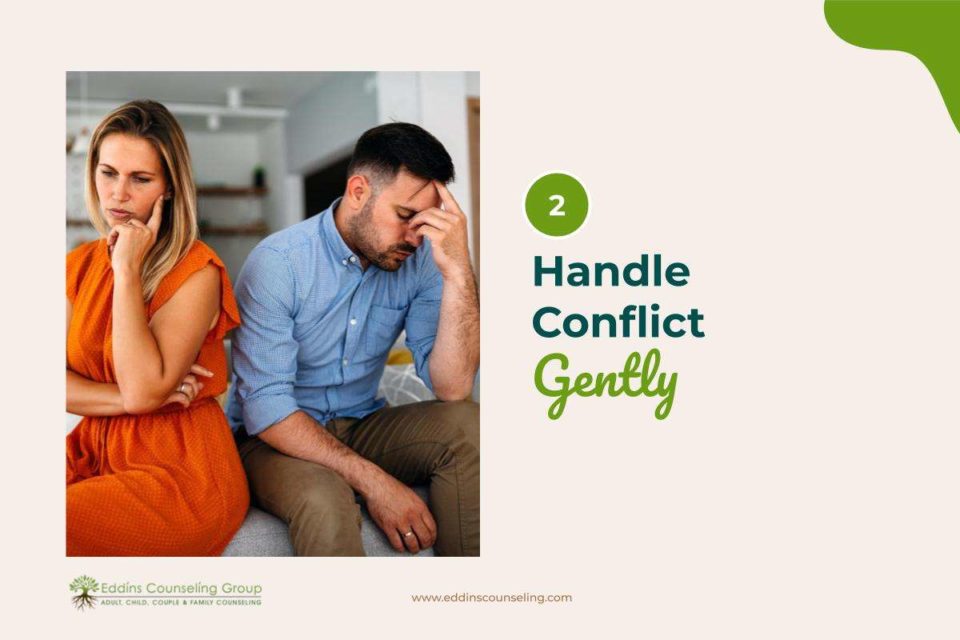
2. Handle Conflict Gently
- Handling conflicts in a gentle and positive way
- Avoid what the Disasters do
- Criticism, defensiveness, acting superior (contempt), or shutting down
- Negative Ration 0:8
- Do what the Masters do
- Mutual respect, humor, show interest, be open, and acknowledge/accept your partner’s ideas and feelings
- Golden ratio 5:1
(Content source: The Gottman Institute)
The second pillar is handling conflict gently. Now, this might seem counterintuitive and in fact, it’s meant to be because handling conflict in a gentle and positive way can be really difficult.
Oftentimes, people are like: “What do you mean? Like we’re in a fight or we’re in an argument. And sometimes it’s going to get heated”. And the idea is that, of course, it’s heated. Of course, you’re going to have strong emotions about whatever the topic is or the issue that’s at hand.
What we want to avoid, and this is what Disasters did much of the time, was use:
- Criticism (criticizing your partner, putting them down, maybe making fun of them, being sarcastic),
- Defensiveness (not taking responsibility, maybe blaming the other partner), or
- Acting superior, which is contempt (acting superior as if you know better, you know more than your partner. That in some ways you’re in a higher role or position than them), or
- Shutting down (either staying quiet, not speaking up, walking away, things like that).
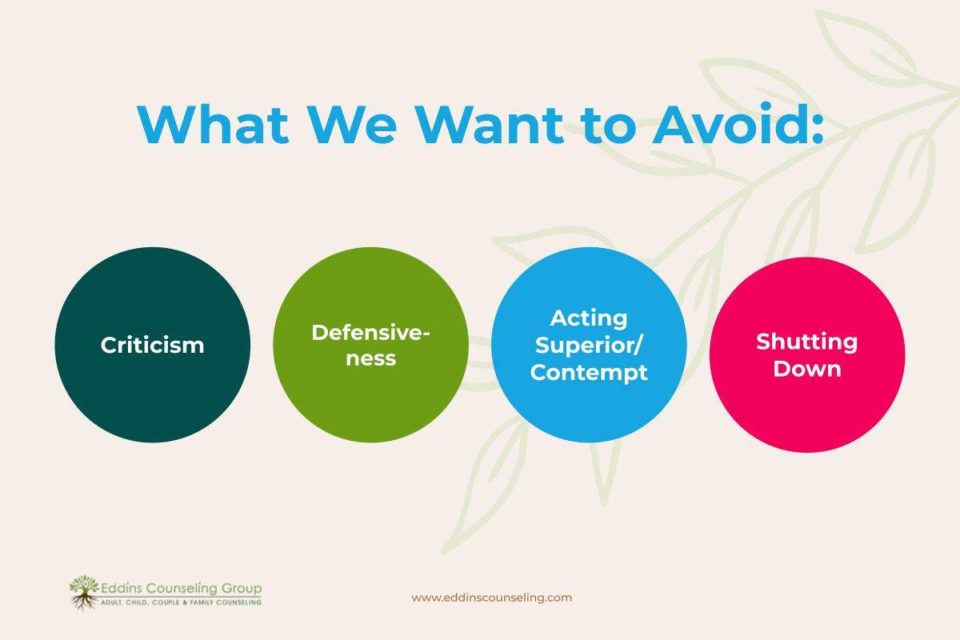
Oftentimes disasters in relationships did that in an 8:0 ratio, meaning the number of encounters was 0 positive to 8 negative.
So more often than not, they are having negative interactions, if not all of the time. The Masters, on the other hand, in conflict showed mutual respect. So listening to each side of the story.
Your perspective and your partner’s respect and respectful manner, showing interest that you actually are very interested and curious in their point of view and their understanding of the topic or issue that’s at hand, being open and being willing to hear, being willing to be wrong. If you’ve done something wrong or maybe have said something that you didn’t mean to say, take responsibility for that.
Oftentimes, the Masters used humor in a way that was mutually understood by the other partner.
The last one is to acknowledge and accept their partners, ideas, feelings, and influence. And so that’s what that means, really being interested in and accepting. If my partner suggests something, I want to be I want to listen. I’m interested in that. I pay attention and it’s meaningful to me.
The Masters versus the Disasters: Masters had a 5:1 ratio of positive to negative interactions. Disasters had a 0:8 ratio, so they had 0 positive encounters to 8 negatives, and the masters had 5 positive to 1 negative.
More often than not, they were engaging in positive interactions where they were affirming each other, showing love, affection, respect, and humor to the one scenario where they may have had a conflict. So you see how big of a gap this is in terms of conflict management. And it’s such an important facet of couples work in general, but I pulled this quote from Dr. John Gottman, the founder of the Gottman Institute and of the Gottman method of couples therapy.
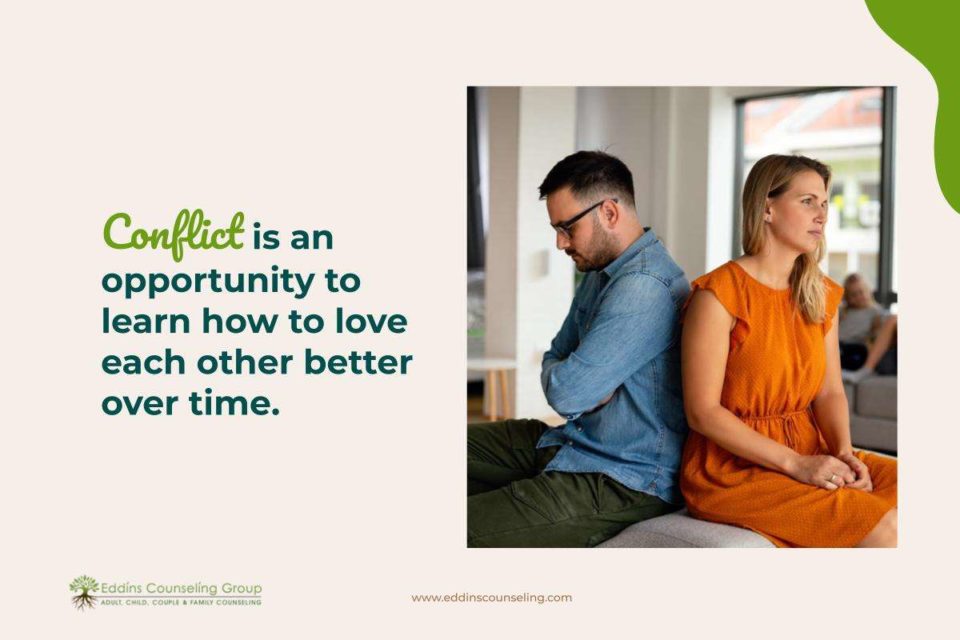
I chose this because I often think that couples who come to see me feel that conflict is a bad thing and it’s really not the way that we handle conflict that can be negative. Our dynamics can be dysfunctional. The way we speak to each other can be disrespectful, can be demeaning, can be negative.
Conflict is an opportunity to learn about something that’s going on either within you or your partner that over time helps you to understand each other better and become closer.
I mean, that’s the irony, right? Oftentimes, people think that conflict splits you apart, and makes you further away from your partner. That only happens if you’re engaging in some of those things that I mentioned, the things the Disasters fall into such as criticism, contempt, defensiveness, or shutting down.
If you manage conflict and communicate appropriately with your partner, it often actually brings you closer, feeling like you’re connected.
You understand them at a deeper level, get why they’re upset, understand where that comes from, and know how to move forward together and in a productive way.
Oftentimes that can really build intimacy, can build trust. That’s why I just mentioned how important conflict can be and relationship building.
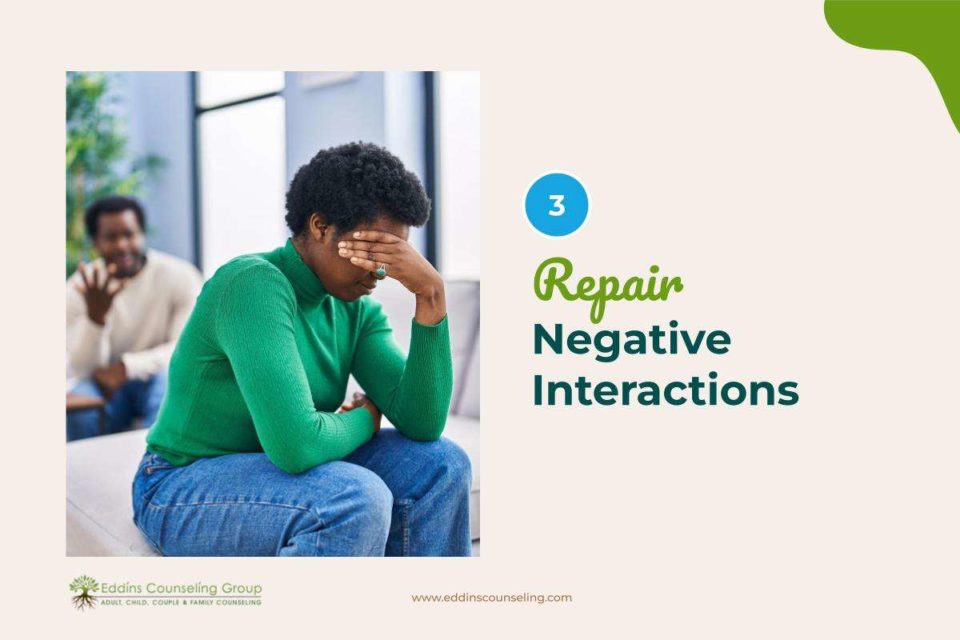
3. Repair Negative Interactions
- One of the MOST important relationship skills
- Being able to repair after conflicts and negative interactions
- Take responsibility, even if it’s for only part of the problem
- We can’t avoid conflict, but we can take action to repair
- A couple’s ability to repair is directly related to the strength of their friendship
- Distressed couples have just as many repair attempts as happy couples
- Dr. John Gottman’s research proves that 69% of problems in a relationship are unsolvable
(Content source: The Gottman Institute)
And finally, the last pillar is repairing negative interactions. This is one of the most important relationship skills because even in their research, they found that even couples who use sarcasm, which could be considered criticism to some people, in a way of humor, where their partner really understood that interaction and understood the humor in the joke, make a repair attempt.
That’s a way to diffuse the situation and be able to repair conflicts or negative interactions. So this could look really different for every couple. Any couple of walks into my door could look really, really different. The idea is that it may not necessarily have to look a certain way, but it has to be perceived by both parties. So both people have to feel like they really understand the attempt and they are experiencing that: “They get it. I get it.” That level of ease or relaxation falls upon them.
Taking responsibility, even if it’s only for part of the problem, is such a difficult one. I think it is such a difficult one because it’s really about dropping your agenda. It’s just that these repair attempts tend to not work when partners don’t feel close or accepted or safe.
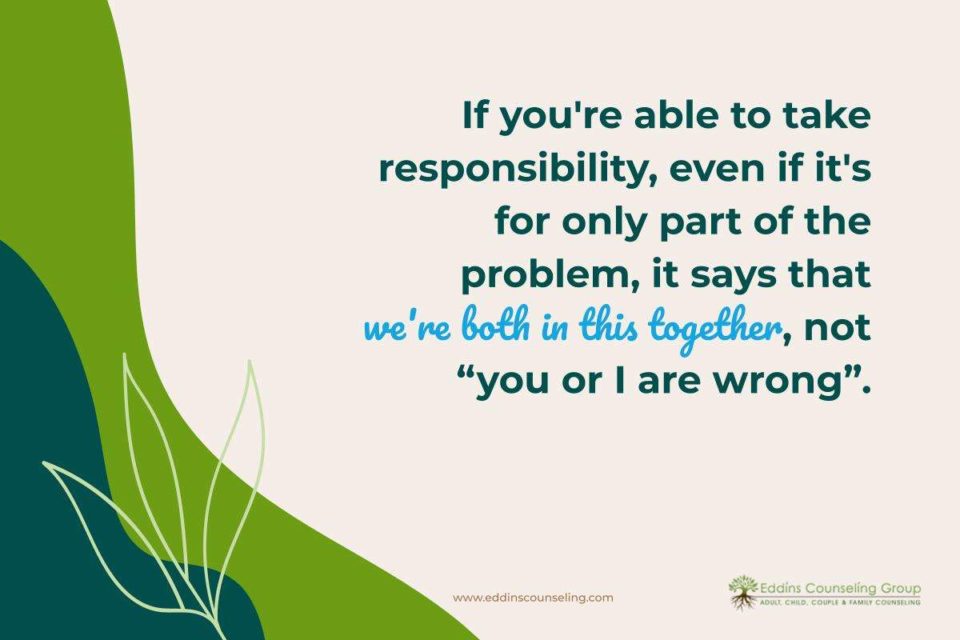
If you’re able to take responsibility, even if it’s for only part of the problem, it says that we’re both in this together, not “you or I are wrong”.
Every situation and conversation between you and your partner is dynamic. We both bring in something to that dynamic. It’s so difficult for people to take responsibility and not get defensive. It’s one of the hardest things I think I come across because part of it for some people is that they want to avoid conflict altogether.
We can’t do that. It’s unrealistic because we have conflict and it’s not about avoiding it. It’s not about even maybe resolving it. It’s about making repair attempts to say that this is important, whatever the situation is that is coming up. Obviously, it’s important to one or both of you. So the idea is, is that you want to be able to repair directly when you feel like something has gone amiss.
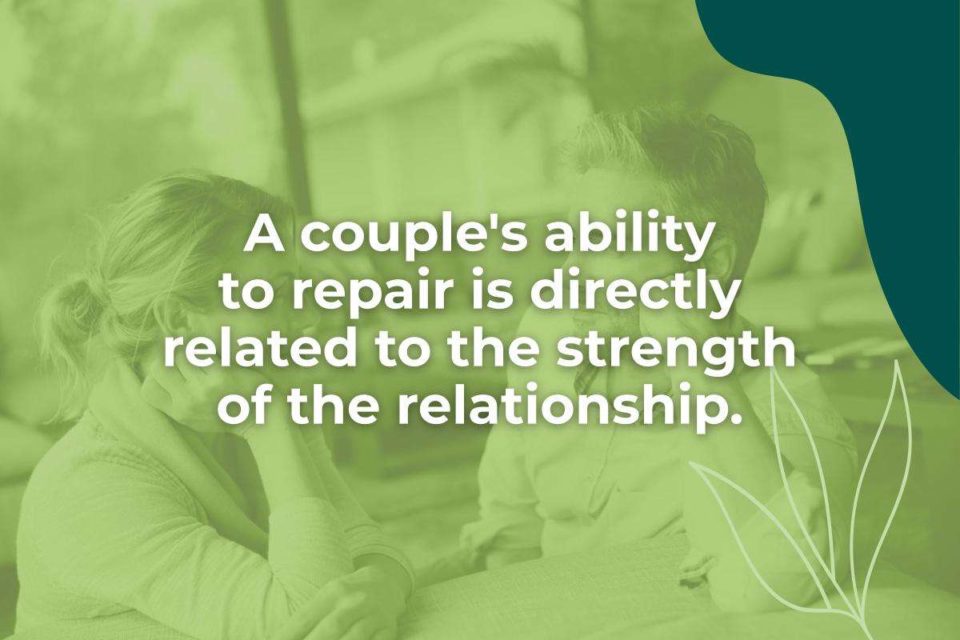
A couple’s ability to repair is really directly related to the strength of the relationship.
If you feel very close to your partner, you feel loved, feel trust, and you feel safe, then it’s much easier to make repair attempts because you’re willing to take responsibility.
Let your guard down, not be defensive. You tend to not be critical of the other person and you tend to not shut down because you want to stay connected. So it is much more difficult for couples who do not feel like the strength of their relationship is not strong.
Oftentimes distressed couples have just as many repair attempts as happy couples. So it’s not about the number of repair attempts. It’s actually the quality of the repair. So in a lot of ways, both distressed couples and happy couples have the same number of repair items. Through their research, they found that happy couples just often times have more productive or more quality in their repair attempts.
And to their research, 69% of problems that couples face are really unsolvable. What I mean by that is that it’s the idea that these could be personality traits that maybe rub you the wrong way about your partner. It could be long-standing issues like saving money or spending money, but the research finds that there’s an emphasis in the idea that couples have to learn to manage conflict, not avoid it, or attempt to eliminate it, but just manage the expectations and manage the way they communicate around it. So it’s effective. It’s productive. You feel like you grow closer to your partner.
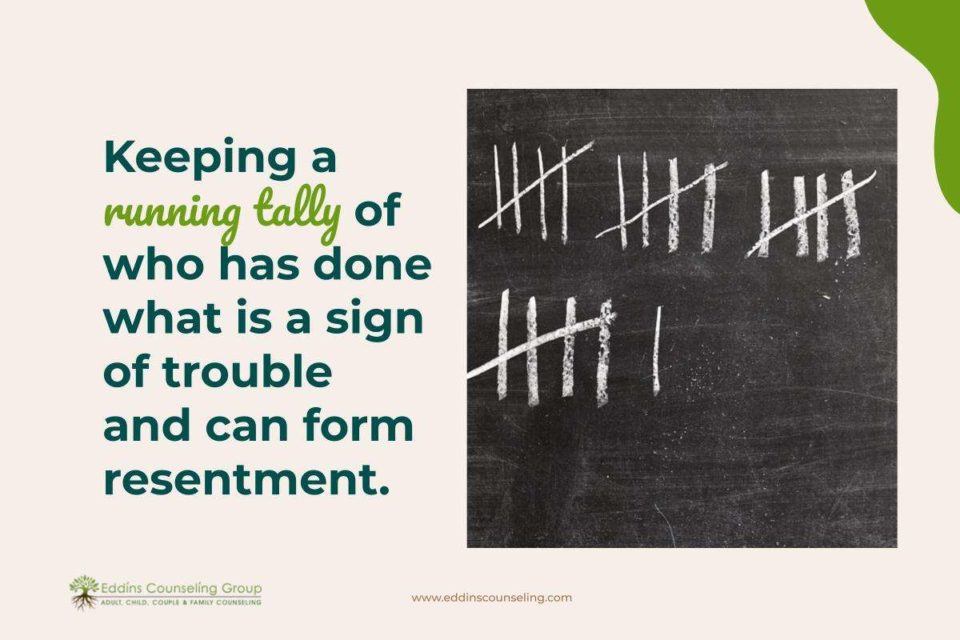
Several Relationship Myths
- Relationships are always equal: Keeping a running tally of who has done what is a sign of trouble and can form resentment.
- Affairs are the root cause of divorce: Dr.Gigy and Dr. Kelly found that 80% of divorced men and women cited growing apart and loss of a sense of closeness to their partners as reasons for divorce, as opposed to only 20 to 27% blaming their separation on an extramarital affair.
- Conflict is a bad sign: Conflict is inevitable in all relationships, all relationships require work!
- What couples fight about is sex, money, and in-laws: Couples fight mostly about nothing.
- Love is enough: True “perfect” love isn’t without flaws.
- If a relationship requires therapy, it’s too late: Over 900,000 divorces occur in a year in the USA, and fewer than 10% of those couples that divorce ever talks to a professional.
(Content source: The Gottman Institute)
Now we get into the myths about relationships.
1. Relationships are always equal
So myth number one, relationships are always equal, is not true because it’s not 50:50, it’s 100:100. You both are 100% invested in a relationship.
Keeping a running tally or a tit-for-tat sort of thing with your partner is a sign of trouble and can form resentments toward your partner if you feel like: “Well, they did this” or “I did this, so they should be doing this”. If you’re keeping track of what they are doing, and what you’re doing, that’s not a good sign.
2. Affairs are the root cause of divorce
Affairs are the root cause of divorce, so a lot of people think that this is the truth, but it is actually a myth.
So two psychologists found that 80% of divorced men and women cited that it actually was growing apart and a loss of sense of closeness to their partner that was actually the reason for their divorce, as opposed to 20-27%, blaming it on infidelity or extramarital affairs or betrayals.
I think this just supports what we’re talking about. If you feel distant emotionally from your partner in terms of closeness, 80% of divorced people found that that was the reason for their pursuing divorce proceedings.
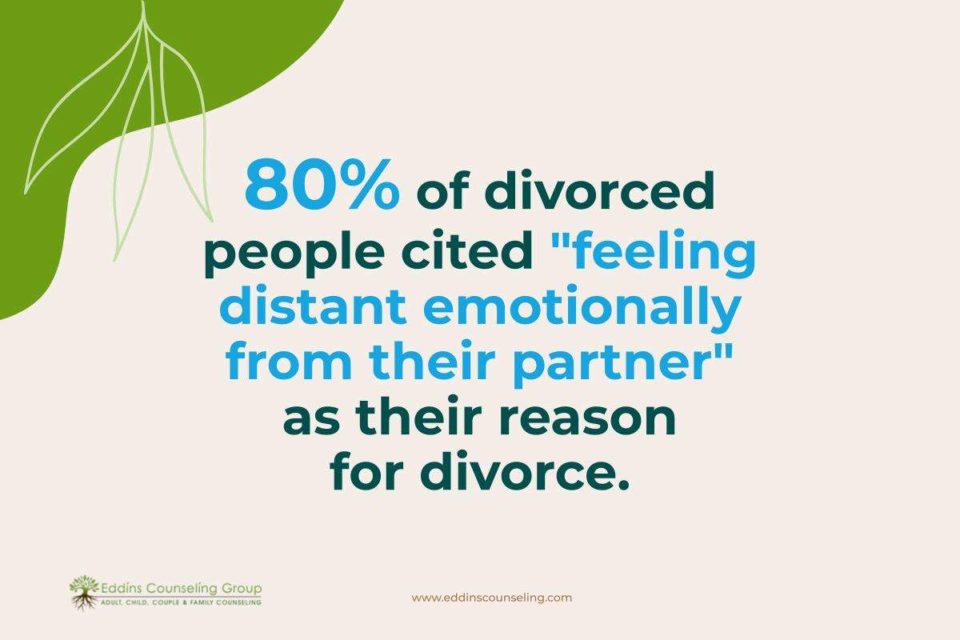
3. Conflict is a bad sign.
We just kind of touched on that. But this is a myth because conflicts are inevitable and all relationships no matter what. Can’t avoid it, can’t go around it.
All relationships require work. It is not easy, and I think a lot of couples come into my room and oftentimes suggest that it should be easy. And it’s not! It’s not meant to be easy.
You’re two different people trying to create a life, meaning, and experience together.
As we saw in the last slide, conflict usually arises because you’re missing each other, you’re missing attempts to communicate, especially if one person is attempting to get emotionally closer to the other and maybe the other is getting defensive or backing away. That can cause even more conflict if you feel like you’re not communicating effectively and if you’re missing each other.
4. Most fights are about sex, money, and in-laws.
Number 4, couples fight about most, is sex, money, and in-laws is also false. But this is a very common one and it’s a little funny. Couples mostly fight about nothing. This is sort of ironic, I guess, but there’s no common thread. That’s what I mean. They could literally argue about anything, which means it’s nothing because there’s no commonality.
The commonality is that most conflicts arise from failed bids to connect with your partner emotionally.
So I gave the example if your partner was brushing their hair and they turned to you and said: “Hey, do you have a minute to talk?” You can either turn towards them and say: “Yes, of course! Of course, I can make time for that.” or turn away and say: “No, I don’t have time for that.”
At that moment, is it a deal breaker for your relationship? I mean, depends on if you’re on good ground or not, but maybe not. What happens is those things happen over time, the more often you turn away, the more often you’ll probably do that in the future, and that creates emotional distance from your partner.
5. Love is enough.
Number five, love is enough. This is also false. No love is perfect. It’s not without flaws, and certainly, I think people don’t count on that.
Romance is so fun. Great sex and adventure are also fun. All of these things are priorities when you’re courting your partner, which often is in the first months to a year, roughly. But as the relationship goes on, you build closeness, and habituation happens. You get familiar with and often time, that’s when we don’t practice courting our partner as much. And that is absolutely needed!
For one, to develop that close friendship that we talked about. It shows that you have interests, and you’re continuously pursuing your partner. That goes back to number one: “relationships are equal”. It’s never equal. You’re always pursuing your partner. You never get into a place where you’re comfortable and say: “Oh, this is good”.
Everybody wants to be pursued and feel like they are a priority to their partner.
As we get older, we might have an endless to-do list for caring for family members and children. If we don’t make intentional time to make our relationship a priority, it will deteriorate.
6. If a relationships requires therapy, it’s too late
That kind of goes to number six. Part of why I thought this lecture or talk was really important is that if relationships require therapy, it’s too late, that’s such a mess and it’s not. There is a survey done that over 900,000 people got divorced, which is the average (almost a million people get divorced), fewer than 10% of the number ever went to talk to a professional or went to therapy.
Don’t be that 10%! Come to therapy. It is so beneficial and it can help no matter what the time is, and no matter where you are.
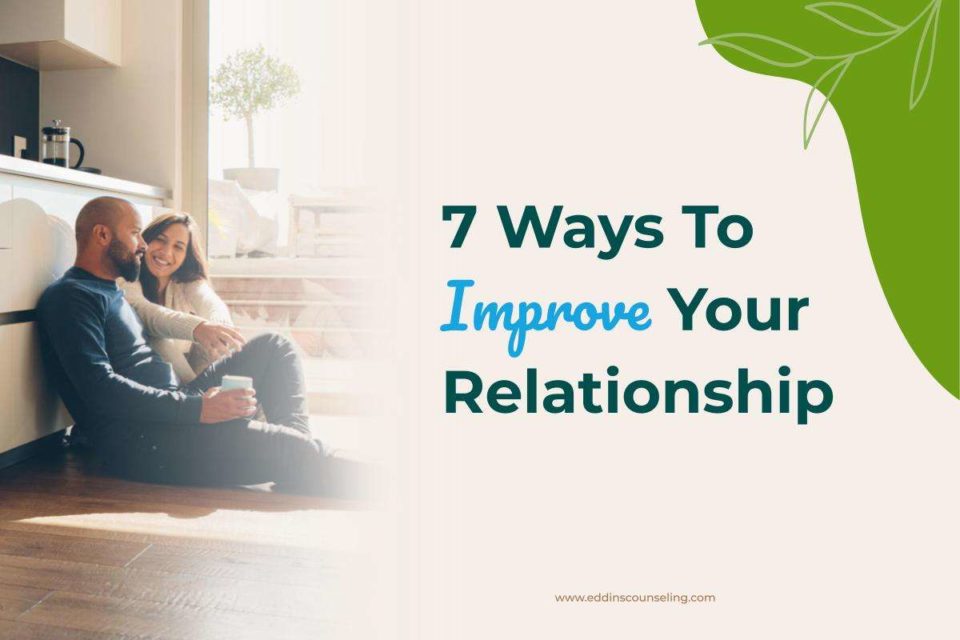
7 Ways To Improve Your Relationship
This leads to some strategies that some of you can take away and implement into your relationships now. So here are some seven ways to improve your relationship:
1. Seek help early
We are stemming from our last slide. As I said, out of the 900,000 people who get divorced annually in the US, only less than 10% of them have gone to therapy.
According to the Gottman Institute: “The average couple waits over six years before seeking relationship help”.
That’s a long time and a bounce. So here are some statistics:
- Half of all marriages that end do so within the first seven years
- The average couple lives with unhappiness for far too long
- Red flags:
- persistent arguments without the ability to dialogue,
- feeling disrespected by your partner,
- disconnected, and
- feeling emotionally distant
(Content source: The Gottman Institute)
As I said, conflict is not a bad thing. It is necessary and unavoidable. The tricky part is when those arguments or conflicts become persistent and you’re not able to dialog, meaning you’re not able to talk about what’s going on, what’s wrong without hitting a lot of roadblocks, without hitting those roadblocks (the criticism, contempt, defensiveness or shutting down).
Feeling disrespected by your partner is also a huge one. If you don’t feel respected, feel like an equal, and don’t feel like your priorities are taken care of. If you feel disconnected emotionally, we go back to the statistic we talked about earlier, that 80% of divorced people said that they feel disconnected and that’s why they ended the relationship with their partner.
This solidifies in my mind that you should seek help early, seek help when you first see red flags, and when you first notice things are maybe off or feel like you’re not connected.
2. Edit Yourself
- The most successful couples are kind toward one another
- It can be difficult but it’s important to watch what you say to your partner
- Avoid criticism or blaming when discussing touchy topics
- Express your needs and concerns respectfully
(Content source: The Gottman Institute)
This goes back to what do the Masters of relationships do. The Masters in relationships most successfully are kind to one another. They are gentle, caring, and think about what’s coming out of their mouth. They stop and pause and wait to say what they need to say and they edit themselves.
Certainly, there are times that we are talking to our partner and we’re like: Oh my God, I can’t believe they’re thinking that”. But don’t say it out loud! That’s what I mean. Edit yourself! Don’t say that out loud, because that comes off as critical or judgmental.
It’s like editing ourselves and thinking: “I’m interested. This person has something valuable to me and I care about them. I want to give them respect. I want to give them the mutual respect they deserve. So I want to listen to them and I want to be careful with my words.”
Yes, it can be difficult, of course, if you have big emotions. But that’s a huge part of our role when we go into a dialog with our partner. Manage our own emotions.
We can only control what comes out of our mouths and our mind and say what we need to say.
It’s important you watch what you say to your partner because you can’t take it back. You can apologize, but trust me, you cannot take it back and those words can be weapons.
Avoid criticism or blaming in discussions.
We talked about this a little bit earlier, that the disasters and relationships often use criticism, contemptuous words, and blaming when they were speaking with their partner, especially around maybe touchy or sensitive topics.
Express your needs and concerns respectfully. I don’t think I can say any of this enough because it’s so important that we’re showing our partners that they deserve respect, kindness, empathy, and understanding.
Remember, you’re in a relationship with this person! They’re not your enemy.
They’re not a bad person. You’re meant to be partners together, you’re meant to be spouses. Together, you are working towards the same goal. You are in a relationship. This is not like your enemy on the other side of the playground or who you’re trying to battle.
I think sometimes if you’re feeling very defensive or having strong feelings it’s very difficult. But remind yourself that this is the person I love and care about. I would never want to speak to them with words that are harsh or hurtful because I can’t take it back.
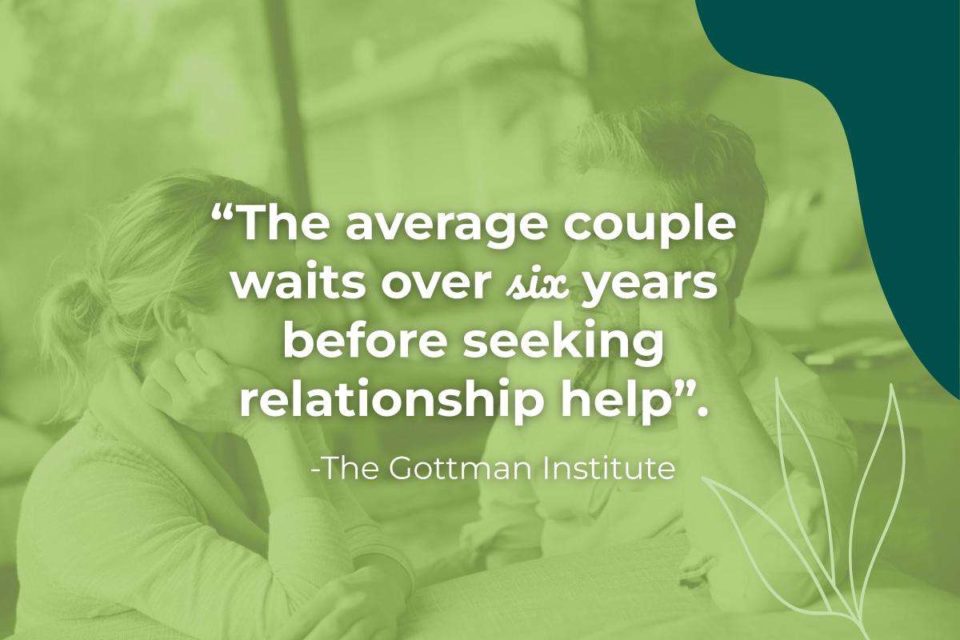
3. Soften Your Startup
- From Dr. John. Gottman’s research from the Love Lab, he was able to predict divorce amongst newlyweds from the first 3 minutes of a conflict discussion
- Arguments often escalate because one partner brings in criticism or contemptuous remarks
- Gentle Startup
- Bring up problems gently and calmly engage
- I feel…because of…I need
(Content source: The Gottman Institute)
The Gottman Institute did a lot of research in the early years, like the 70s, and 80s and they did something called the Love Lab. This was basically bringing in newlyweds and they hooked them up to some kind of heart rate monitor. Dr. Gottman, after a decade of doing that research, was able to predict divorce rates among newlyweds within the first three minutes of conflict arising.
The first three minutes of any conflict are crucial because if you present with contempt, criticism, defensiveness, stonewalling, or shutting down, those are factors that predict divorce.
If your argument often escalates and you or your partner bring in criticism or contemptuous remarks, you can work with the couples therapist to practice different skills. One of those skills is softening your startup.
So what the gentle startup looks like? First of all, speaking from your perspective, not talking about your partner, not blaming them, not talking about how they feel, only talking about your experience. So the gentle startup looks: “I felt humiliated because of you making fun of me when I slipped and fell or something..”, “Next time that happens, what I really need you to do is ask if I’m ok”.
That’s a way that you’ve won focus on your own feelings and experience and you don’t talk about your partners because, again, you don’t know what they’re feeling and you can’t read their minds.
No matter what, you can’t say they felt a certain way if they didn’t or they did. That’s just their experience just like you have your own experience of every situation. So that’s what we want to talk about, our focus on.
4. Accepting Your Partner’s Influence
- In studying marriages, research found that a relationship succeeds to the extent that the husband can accept influence from his wife.
- For instance, a woman might say to her husband, “Do you have to work Friday night? My mom is coming into town and I need your help getting ready.” He replies: “My plans are set, and I am not changing them”.
- A husband’s ability to be influenced by his wife (rather than vice-versa) is crucial because research shows that women are already well practiced at accepting influence by men. A true partnership only occurs when a husband can do the same thing.
(Content source: The Gottman Institute)
We sort of touched on this a little bit ago when we talked a little bit about friendship and the three pillars.
Part of the conflict is accepting your partner’s influence which can be really helpful as a way to not get defensive, to be interested, to be understanding, and willing to listen.
In a lot of studies, research has found that relationships often succeed to the extent that the husband can accept influence from the wife. This is really critical because, from decades of research, women often accept their husband’s influence. They have a natural ability to do that, and men struggle with that.
So, for instance, you know, a wife could come home and say: “Do you have work Friday? My mom’s coming into town. I could use some help getting the house ready.” And the husband replies: “My plans are not changing them”. That’s a really very simple example of an inability to accept influence rather than vice versa. This is crucial because the research shows that women are naturally well-practiced in accepting influence from male partners and, of course, this is for heterosexual couples. It’s a little bit different with same-sex partners.
Women accept influence from their partner much easier. This is something that can be a little tricky, but oftentimes very easy if you’re willing and able to accept that there’s something important about this.
As an example, in this situation: “Hey, mom’s coming into town, could use your help”. Obviously, there’s a need there. It’s like inclusion: “I want you to be a part of this. I want you to feel like I’m supported.” There’s always a rhyme and reason to what we’re asking.
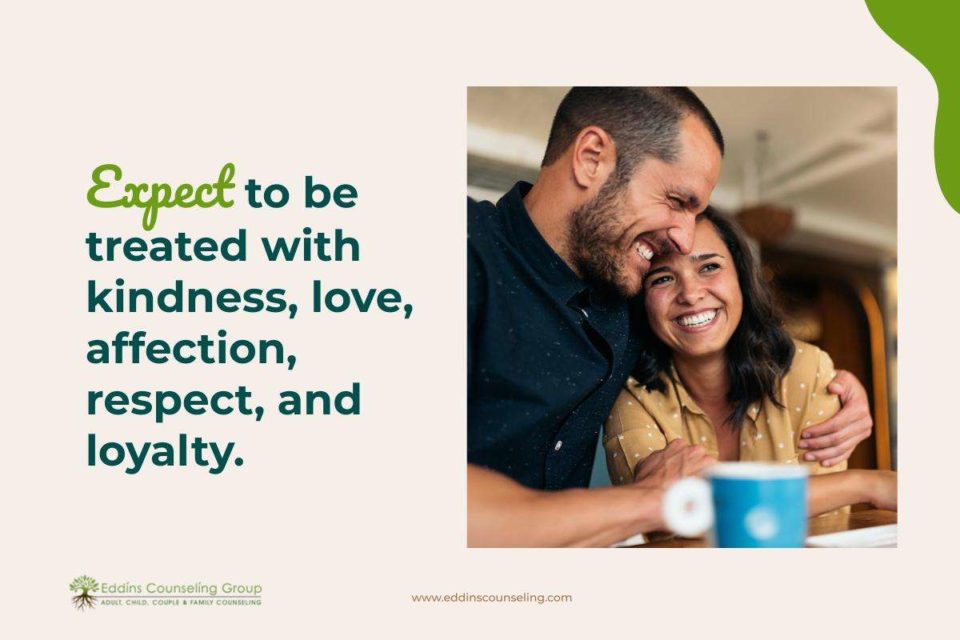
5. Have High Standards
- In good relationships, couples have high expectations for how they are treated and refuse to accept hurtful behavior and a low tolerance for bad behavior from the start of the relationship
- Expectations to be treated with kindness, love, affection, respect, and loyalty
- They don’t tolerate emotional or physical abuse/neglect
(Content source: The Gottman Institute)
Having high standards is a really interesting way to improve your relationship. Sometimes I think people think of high standards as unrealistic expectations.
What this really means is that in good relationships, couples who have high expectations know how they should be treated.
They refuse to accept hurtful behavior and have low to no tolerance for bad behavior from the start of the relationship. This is also backed by research that couples who have high expectations of their partner and what a relationship should be do not accept bad behavior, abusive behavior, lack of kindness, neglect, etc, because the expectation is that I should be treated with kindness, affection, love, respect, loyalty, and equality.
Couples who are successful (this is also supported by research), have high expectations of their partners. They don’t tolerate emotional or physical abuse or neglect. They say: “I’m worth more. My expectation is that my partner should offer me these kinds of core conditions: kindness, love and affection, and respect. Those should be no deal breakers and non-negotiables.”
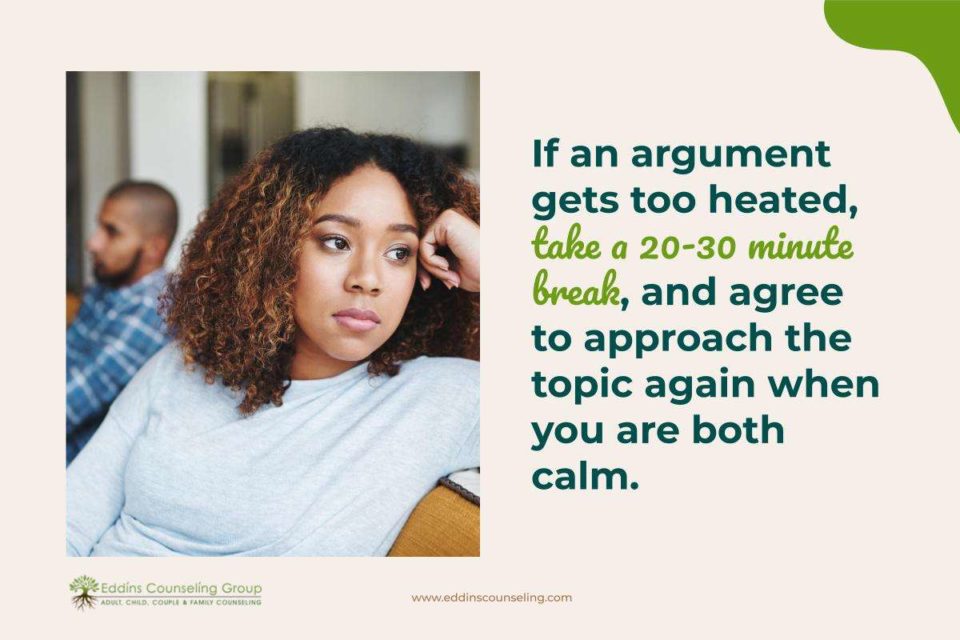
6. Learn to Repair & Exit Argument
- Happy couples have learned how to repair during conflict before it emotionally gets out of control
- Examples of repair attempts
- Use humor
- “I understand this is hard for you”
- “We’ll figure this out together”
- Know when to back off
- If an argument gets too heated, take at least a 20-30 minute break, and agree to approach the topic again when you are both calm
- Ask your partner for a positive need.
(Content source: The Gottman Institute)
This is another tool that you guys can take away with you – learning to repair an exit strategy. As I said, the Masters have a 5:0 ratio again for positive and negative interaction. They’ve learned over time how to repair during conflict so that they grow emotionally close together and not feel out of control. So, again, this could look very different for every couple. It’s not to say this is right/this is wrong.
Some couples use humor. Sometimes that’s appropriate, sometimes not. But again, it doesn’t really matter unless your partner feels like they’re accepting that repair and they think you’re good. “I understand how hard this can be for you”. Validate your partner: “We’re in this together, and we’ll figure it out. That’s the “we” mentality. Sometimes that can be a repair attempt of: “You’re not alone. I’m here with you. Let’s figure this out together.” It doesn’t feel like your partner is sitting there thinking he/she has to figure this out all by themself. This is saying: “No, we’re going to do this together.”
Know when to back off. This is the exit strategy part.
Happy couples and successful couples know when to pick their battles. They know when to back off, too, and not persist on something.
It’s can be for a lot of reasons. It’s not super important, and it’s not a deal breaker you have a preference on. If an argument gets too heated, and you get overwhelmed and too emotional, research supported that you should take a 20-30 minute break minimum and then agree on a time when you’ve come back to approach the topic again when you’re both calm.
That’s super important, the agreeing on a time to come back because I have so many couples who say: “Oh, we’ll take a break, but we never come back and talk about it.” That’s avoiding conflict. You have to come back because it’ll bubble over and eventually it gets too out of hand where you’ve got conflict upon argument building up and it’s too great to break down. It makes it much more difficult to build that connection again. It’s not impossible but challenging.
When you avoid conflict, it deteriorates your relationship over time because you’re not addressing things that need to be addressed.
And it’s just open wounds that don’t have antibiotics.
Asking your partner for a positive need is a really easy way. If you’re asking your partner to do something different or asking them to do something for you don’t say: “I want you to stop doing this”. No! Change it into a positive need: “I would like it if you did this”. It just goes off so much better, because when you say: “Stop doing this.”, most partners think they are doing something wrong and you are blaming them.
When you say: “I really would like it if you did this”, the approach comes off as a lot softer. You’re making a request, you’re not demanding. Your partner is not going to be as willing to do whatever it is you’re asking unless it’s a request. That you’re requesting him and asking: “Could you please do this instead” or “I need this”.
7. Focus on the Positives
- Golden Ratio (remember from earlier)
- A rich positive climate
- Pay attention to how you describe your relationship
- “We laugh a lot together”
- “We never have fun anymore”
- The Emotional Bank Account
- Make regular deposits
(Content source: The Gottman Institute)
The next one is focusing on the positives, which we mentioned with the golden ratio earlier (5:1). I don’t want you to keep tabs because that’s not a good sign. But it just it’s just to articulate it or illustrate how many positive encounters happy and successful couples have compared to how many negative encounters they have. It’s a much greater ratio, which allows for more closeness and allows for more bonding, more friendship.
A rich, positive climate is another really good one.
Successful and happy couples often have a positive climate, meaning they have really good positive feelings about their partner. They’re gushing, oohing, and awing about this person.
They have such a rich climate of positivity between the two of them. It’s not to say that this is a toxic positivity, though, like all things are good all the time. That’s not what I’m saying. I’m saying you have a positive perspective of your relationship and your partner, you love them, and you care about them. What they say matters, you respect them, and you’re loyal to them.
If negativity creeps into your relationship, that’s also a red flag. For example, if you have a partner who drops things a lot. And I dropped a Tupperware and things flew everywhere. You know, one thing a partner could say is: “she’s so clumsy, she’s such a klutz”, would roll his eyes internally and he might see this himself not even out loud. That is such a good example of a negative climate because your automatic thought about your partner is that they’re clumsy, a klutz, and messy. Those are all criticisms of your partner.
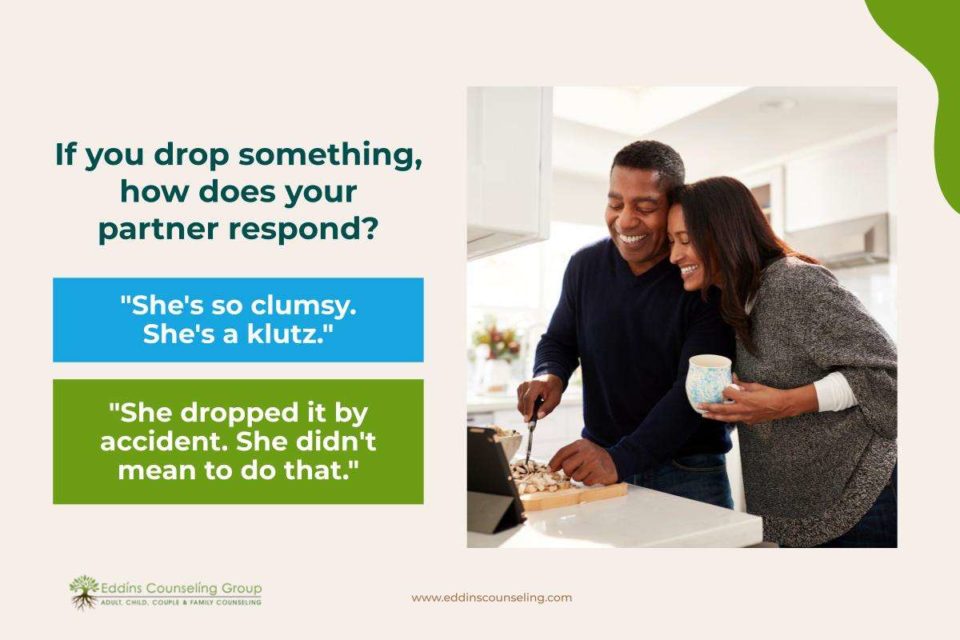
On the other hand, if you had a positive climate with your partner, you might say: “Oh, well, that’s an accident. She didn’t mean to do that.” That gives you a positive perspective on your partner, which helps you to stay interested, not get defensive. You see where this is kind of all tying together.
Paying attention, to how you describe your relationship. As I said, it kind of leads to: “We laugh a lot together. I have fun with my partner. We love spending time together. We have the same interests…”
Gottman talks about something that I really love, it’s called the Emotional Bank Account. You can think of it like a piggy bank or like a regular bank account.
When you have good interactions of positive interactions, have fun, laugh together, have good conflicts that go through, and have good discussions about it, those are deposits into your emotional bank account as a couple.
Withdrawals happen when you have something devastating that happens like for example, a loss of a family member, or a conflict that goes really bad and you erupt or yell at each other and it doesn’t end well. You miss attempts to connect. Those are all little withdrawals.
When you have more money in your bank account, you have more cushion when you get hit with debt, or when you get hit with something that takes money out. This goes back to the golden ratio again. You’ve got plump positive encounters, so when this negative encounter happens, you’re good. It’s not breaking your relationship, and it’s not coming to invade it because you’re strong. You’ve got the strength between the two of you.
So we’re wrapping up the webinar here and now I’ll take questions.

Questions
If you guys have anything that you want to ask, you can either unmute yourself and just ask or type it in the chat and I’ll spend the next 10-15 minutes left taking questions.
“Hi, I think I’m going to be the first one. I was wondering what are the proven differences between how a woman handles a relationship and how a man handles a relationship in straight couples?”
There are a lot of myths in relationships. Well, one of them is that men are sort of built for relationships more than women are. I don’t really know where the myth comes from, but it’s one that we learn about in our couples training. That’s not true! Both men and women are built (using that word loosely because I’m not sure how they meant to say that) and are capable of handling conflict and communicating just as effectively.
Not one gender over the other is better at doing that. The only thing they found, as I mentioned in the slides, is that men tend to have a more challenging time than women inherently accepting at their partner’s influence in heterosexual couples.
Women’s societal norms are generally much more readily influenced by their partners.
And so it is not as difficult for them in conflict to accept their partner’s influence in terms of their ideas, feelings, or thoughts.
Not to say that it’s not challenging, it’s just to say that it’s much more inherently easier for women than it is for men. Again, decades of research have seen that. But other than that, there are really no discrepancies in terms of satisfaction, communication issues, or conflict. Men and women are just as susceptible to any of those problem areas. So there’s really no difference. I hope I answered your question. But I can elaborate if I haven’t.
What do you think about the five love languages?
My partner is a social worker, so we have had this conversation between the two of us on the love languages. And it’s really interesting because technically some couples take the inventory, it’s very short and you can take it online. We’ll come out with maybe different ways that they show love and want to receive love. Part of me really thinks that all of them are ways that we want to feel loved as human beings.
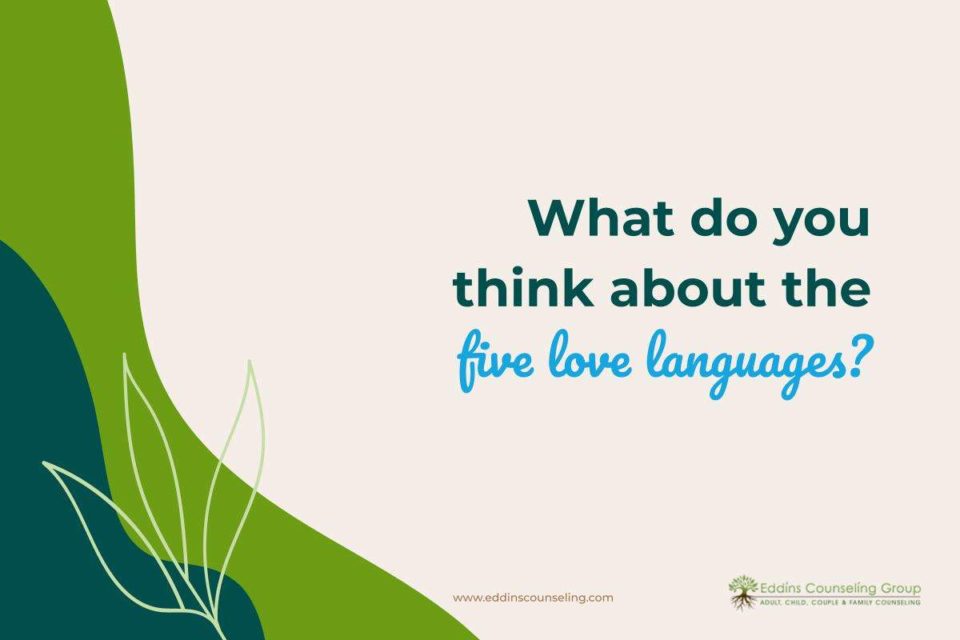
The five love languages are words of affirmation, gift-giving, acts of service, quality time, and physical touch.
Technically, I guess all of them are things that we would want in a relationship or would be ideal. But certainly, maybe there are one or two that we lean toward most as ways that we want to receive love from our partner.
Love languages can be a way to supplement and sort of see if, for example, you are an active service kind of person, and that’s how you show and want to receive love. But maybe your partner has words of affirmation as their love language. Maybe you need to work on affirming them or using compliments or things like that because that’s the way that they accept and know their love.
That’s kind of the intentionality of continuously working on your relationship. It’s not always equal. Love languages are kind of the same, like the same one you have to work at showing your partner the one that they receive love. That might take work because it might not be the way that you show it. So might be a little harder. But that’s part of being intentional with how we do that and ensuring that we are meeting our partner’s needs emotionally, so we stay close. My partner and I joke, it’s like we have all of them. But I don’t know, it’s just a personal thing.
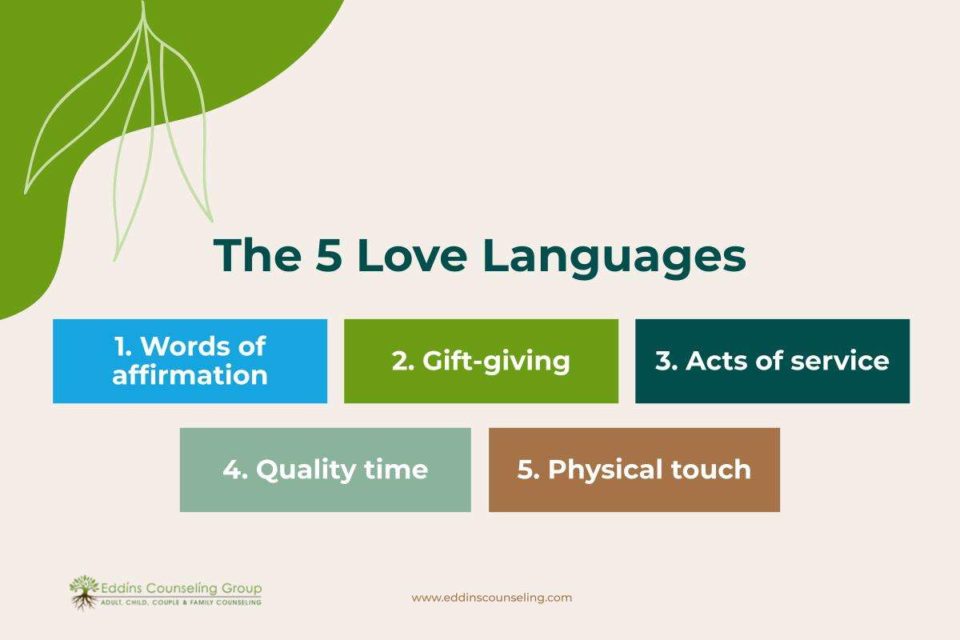
Make an Appointment
If you liked the presentation, please feel free to contact the office. As I said, our number is 832-559-2622 or click here to make an appointment.
I appreciate you guys coming out and listening. Hopefully, it was helpful and provided some input into what helps make relationships stronger and some tips that you guys can take away and just implement now. Seek help early. I am happy to be here to help anybody if you guys need it.
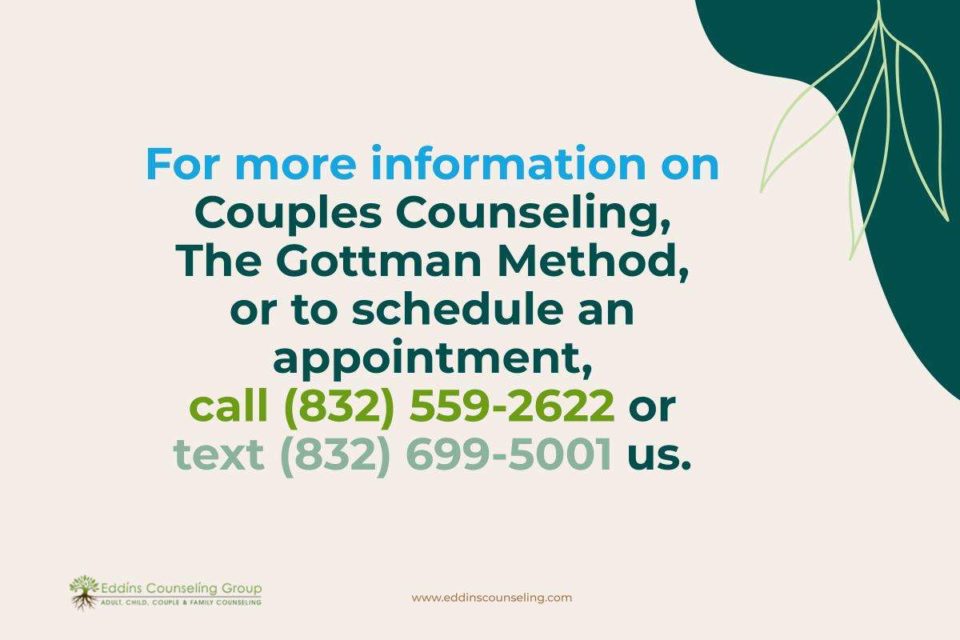
I appreciate all of you guys coming out and listening to my chat, and we have these once a month, so next month’s topic I think is Pride so come join us again and again.
If you have any questions, feel free to email or call and we will wrap up here. So take care, everyone, and hope you have a good rest of the evening and weekend. And thanks so much!
Grounding & Self Soothing
Get instant access to your free ebook.

